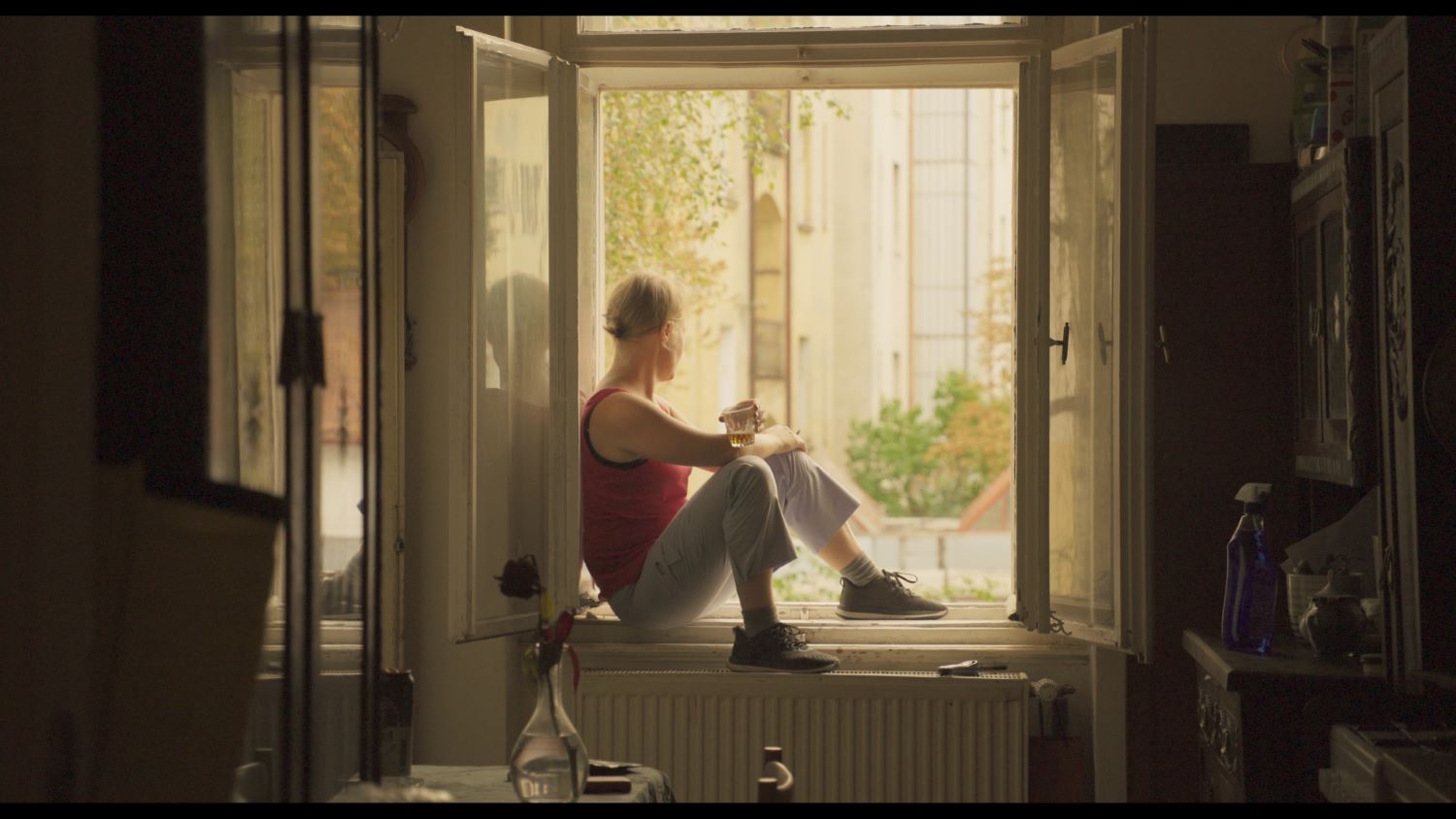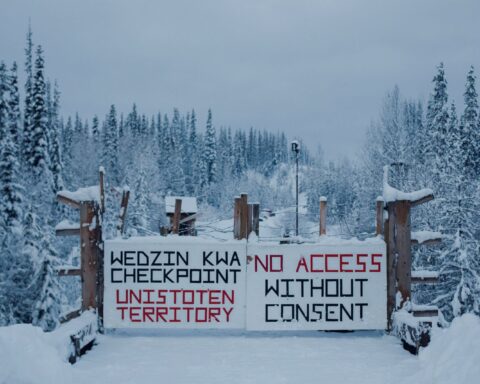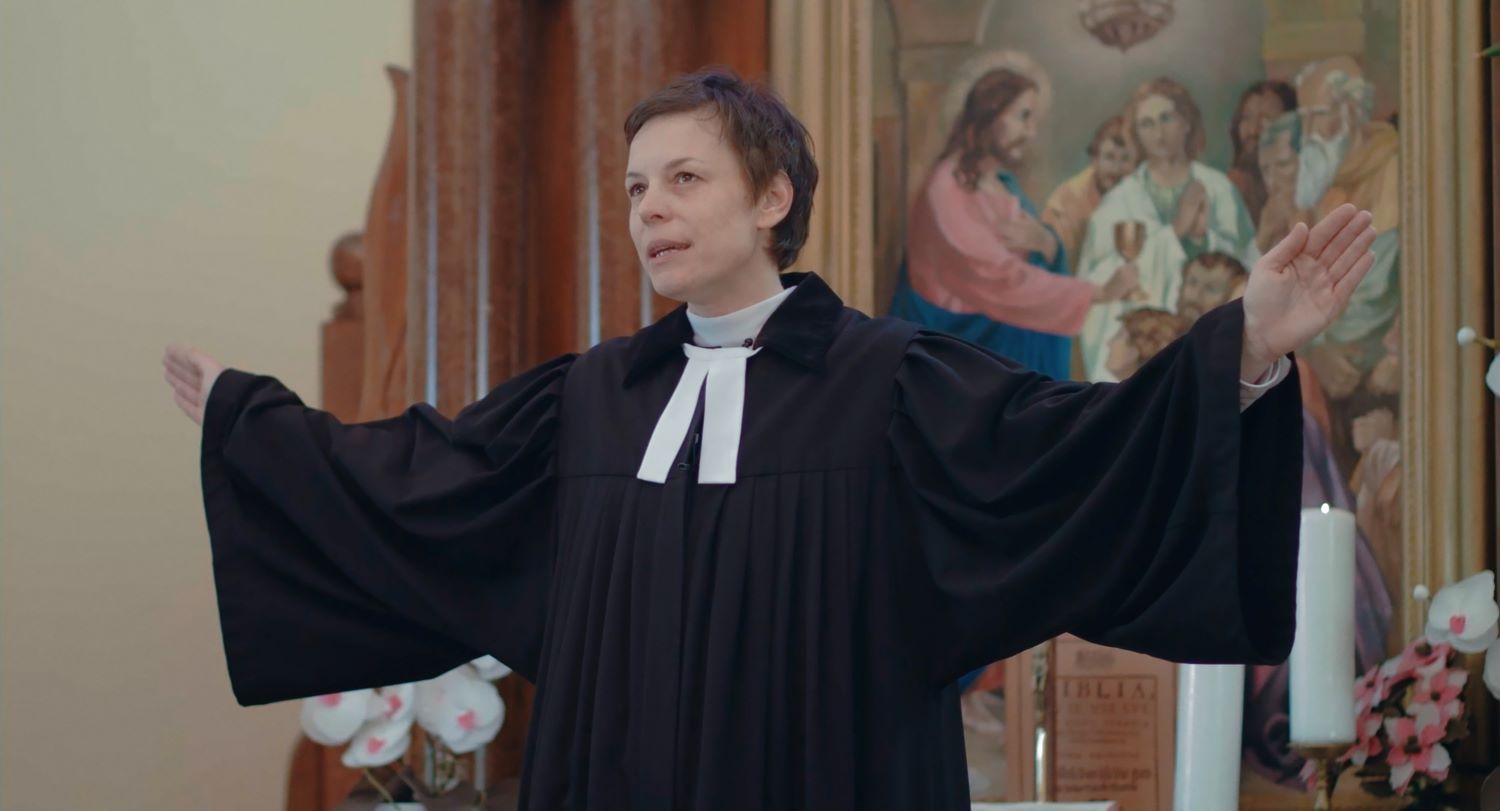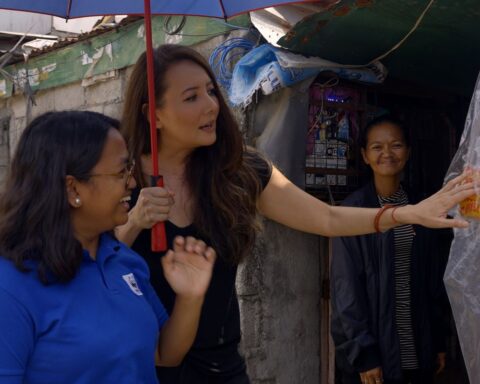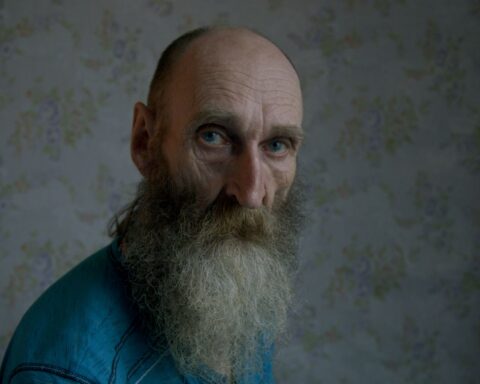Limits of Europe
(Czech Republic/France/Slovakia, 2024)
Dir. Apolena Rychlíková
Programme: The Changing Face of Europe (North American Premiere)
Limits of Europe is a riveting personal account of life as an itinerant labourer in Western Europe. Operating undercover, distinguished Czech journalist Saša Uhlová sacrifices her physical and mental well-being to present a dense exposé on the abhorrent conditions endured by unskilled workers. Raw and unflinching, the film’s simple strategy is profoundly effective in the way that it raises as many questions as it answers. It discloses wide ranging implications and universalities that no society can ignore.
In this diaristic doc, it is evident how social and fiscal inequalities underpin the two halves of the European union. Comparatively speaking, countries in the west are thriving, offering opportunities that the depressed economies of the less developed nations cannot. Jobless Easterner Europeans have limited means to feed their families and those who are employed cannot get ahead on the lower wages their native societies can offer. But as undocumented individuals in the West, they can only get negligible jobs, which provide more money than they would receive at home but offer no basic protections, let alone human rights. As individuals, they are powerless.
Wired with a hidden camera, and leaving behind her husband and four children, Uhlová stealthily spends two years as a covert documentarian, operating in primarily female dominated occupations. She blends in to provide a firsthand account of the dire circumstances these desperate people endure. During the course of this doc, she picks and prepares vegetables on a farm in Germany, cleans hotel rooms in Ireland and cares for the elderly in France.
Days are long and deadlines are impossible. The work is physically demanding. She continually shifts her attention from the gruelling conditions and unreasonable demands of the employers to the individual people she works alongside. This approach elevates the film from simple reporting.
On the farm, the women are crammed into shack-like barracks filled with bunk beds. Spare time is practically nonexistent as they are often called upon to perform other manual tasks during their so-called breaks. What little time they have to themselves is spent drinking, and there’s a lot of that. At the hotel, the standards are high, but management won’t spend the money on proper supplies. She and the other maids are forced to clean toilets with guests’ towel which are then laundered and used by paying customers again.
Because the camera is hidden in the glasses she wears, every movement Uhlová makes comes across as frenzied. Not only does this effect perfectly mirror her experience as a worker, but it also is frightening in its candour. Under these frantic conditions, such a visual strategy, filled as it is with grainy imagery, might prove to be too much to bear, due to its poor quality and repetitive nature if not for Uhlová ‘s trenchant observations. She describes what she sees, what she is told to do, and what she experiences–but Uhlová also takes the time to engage her colleagues in conversation. She exhibits a great deal of empathy and gives us flesh and blood people with personalities, dreams, and emotions. Uhlová’s personal life is also movingly depicted through scenes of her family back home.
Using this direct footage, in all its forms, director Apolena Rychlíková skillfully fashions a nuanced chronicle of the power imbalances that exist in certain areas of employment. The information is there for the viewer to glean from the imagery and Uhlová’s voice over. The director maintains an artful balance between the footage of the working conditions with the shots of co-workers and with Uhlová’s family scenes.
But it’s when she works in France as a caregiver for the elderly, on her own, that the gravity of the situation becomes abundantly clear. This is when the film opens up, offering perhaps the most heartbreaking scenes. She is hired as unskilled labour, but the demands are no less gruelling. Uhlová’s daily schedule is packed but her time with each client is limited. Nevertheless she stops and spends time with these lonely, ailing souls.
When she must quit because of the emotional strain, her boss’s cynical reaction is that it’s hard to find workers because of France’s generous social safety net, which (in her opinion) discourages people from wanting to work. With that shocking statement, the crux of the film is revealed: it was made as a direct response to such a demeaning claim.
Not only does Limits of Europe clearly illustrate the shocking and perhaps insurmountable economic disparity between the eastern and western halves of the European Union but it also sends a message worldwide. The film spotlights only a few areas where workers rights are criminally lacking but it reaches beyond specifics to illustrate universal truths about the erosion of acceptable working conditions. The sad fact is that ill-used people are invisible, but their work is essential. This doc is a staggering chronicle of those that continue to toil in the dark both literally and figuratively.
Limits of Europe screens at Hot Docs 2024.




